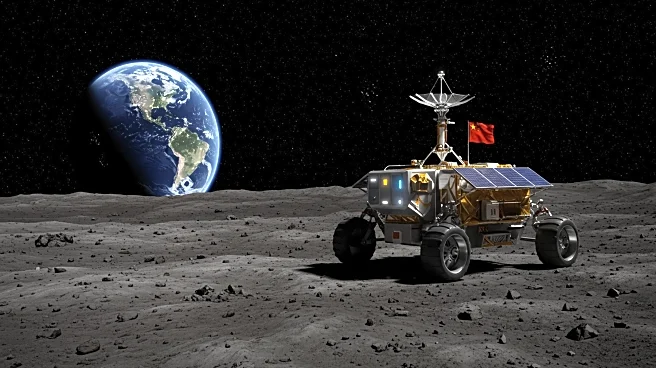What's Happening?
China has made significant strides in its space exploration efforts, with recent advancements in lunar technology. The China Manned Space Agency successfully conducted the maiden take-off and descent test of its Lanyue lunar lander in Hebei province, simulating the Moon's gravity and terrain. Additionally, China's Long March-10 carrier rocket completed its first static test firing, marking progress in its space ambitions. These developments are part of China's broader goal to land astronauts on the Moon by 2030, challenging the U.S.'s historical dominance in lunar exploration. The U.S. has been the only nation to land humans on the Moon since 1969, but China's rapid advancements in space technology are raising concerns among U.S. officials about potential militarization.
Why It's Important?
The intensifying space race between the U.S. and China has significant implications for global politics and technological advancements. China's progress in lunar exploration could shift the balance of power in space, traditionally dominated by the U.S. The potential militarization of space by China is a concern for U.S. officials, as it could lead to increased tensions and competition in space technology. The advancements also highlight China's growing capabilities in space exploration, which could impact international collaborations and the future of space missions. The U.S. faces challenges with its Artemis program, including delays and budget issues, which could allow China to surpass the U.S. in lunar exploration.
What's Next?
China plans to continue its lunar exploration efforts, with the Long March-10a rocket under development for a debut flight in 2026. The U.S. is also advancing its Artemis program, aiming to return astronauts to the Moon by 2027. The competition between the two nations is likely to intensify, with both countries seeking to establish a presence on the Moon. The involvement of private companies in the U.S. space sector, such as SpaceX and Blue Origin, adds another layer to the race, as they work on developing lunar landers. The outcome of this race could influence future space policies and international collaborations.









